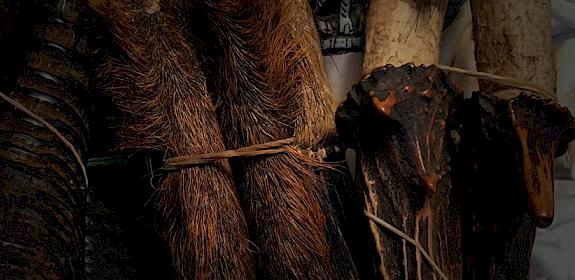Yahoo! Japan bans ivory
Tokyo, Japan, 28th August 2019—Japanese internet company Yahoo! Japan Corporation announced today a complete ban on ivory trade on all its e-commerce platforms. The ban will enter into effect in November this year.
The news came as the 18th Conference of the Parties to the Convention on International Trade in Endangered Species of Wild Fauna and Flora (CITES CoP18), currently underway in Geneva, Switzerland, draws to a close, where elephant poaching and ivory trade issues have been in the international spotlight.
Yahoo! Japan’s announcement came following ongoing discussions with WWF Japan and careful consideration of the evidence accumulated through TRAFFIC’s regular monitoring of ivory trade on the company’s online platforms.
A TRAFFIC study released in 2018 identified Yahoo! Japan as the single biggest online platform for elephant ivory sales in Japan, recording a staggering 4,414 ivory items plus 35 whole tusks, exceeding USD340,000 in total, sold over a four-week period in June and July 2018.
Although domestic ivory trade in Japan is not prohibited, TRAFFIC’s ongoing monitoring revealed a lack of effective regulation over online trade and evidence of both domestic and international illegal trade. Given the elevated risks of online trade, WWF Japan and TRAFFIC have been urging e-commerce companies to introduce a voluntary ban on ivory trade.
Companies including Rakuten, Inc. and Mercari, Inc. already heeded this call and adopted a ban in 2017 with GMO Pepabo, Inc. following suit in early 2019. Now the country’s internet giant, Yahoo! Japan has joined them, cementing the private sector’s efforts towards curtailing online ivory trade in Japan.
“WWF and TRAFFIC welcome this critical step taken by Yahoo! Japan to align themselves with the global efforts to combat illegal wildlife trade online,” said Crawford Allan, TRAFFIC’s Senior Director on Wildlife Crime.
“We encourage companies from all regions to join global initiatives such as the Coalition to End Wildlife Trafficking Online [1] to combine their forces in helping curtail online wildlife crime.”
“WWF hopes Yahoo! Japan’s proactive step will encourage the Japanese government to look critically at the country’s domestic market and its influence on international illegal trade,” said Margaret Kinnaird, WWF Wildlife Practice Leader.
An earlier TRAFFIC study found that regular buyers of ivory in Japan were visitors from China.
“WWF strongly supports the efforts made by key countries to close their domestic markets and reduce the demand that is underpinning the plight of Africa’s elephants. WWF’s consumer research reveals Chinese overseas travellers are persistent buyers of ivory even after the domestic ivory market was shut down in mainland China at the end of 2017.” [2]
During CoP18, Parties to CITES agreed on steps to examine if existing domestic ivory markets are taking sufficient measures to ensure they are not contributing to poaching or illegal trade. Progress in Japan will be closely monitored under CITES.
Notes:
[1] The Coalition to End Wildlife Trafficking Online is a collaboration between world’s leading e-commerce and social media companies to render online platforms and apps inoperable for wildlife traffickers to trade in endangered and threatened species. The founding members are: Alibaba, Artron, Baidu, Baixing, eBay, Etsy, Facebook, Google, Huaxia Collection, Hantang Collection, Instagram, Kuaishou, Kupatana, Mall for Africa, Leboncoin, letgo, Microsoft, OfferUp, OLX, Pinterest, Qyer, Ruby Lane, Sapo, Shengshi Collection, Sina, Sougou, Tencent, Tortoise Friends, Wen Wan Tian Xia, Zhong Hua Gu Wan, Zhongyikupai, Zhuanzhuan and 58 Group, convened by TRAFFIC, WWF and IFAW. Rakuten, a Japanese e-commerce company, has since joined the Coalition in August 2018.
[2] https://wwf.panda.org/?335570/Game-changing-ivory-ban-takes-effect-but-further-efforts-needed-to-ensure-long-term-gains
About TRAFFIC

TRAFFIC is a leading non-governmental organisation working to ensure that trade in wild species is legal and sustainable, for the benefit of the planet and people.





